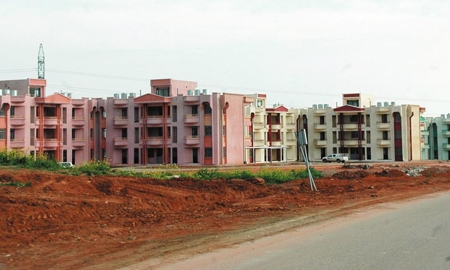Foreign and domestic investment in Iraqi Kurdistan has been rising annually for the last six years, and with more than $3 billion invested in the first six months alone 2012 looks set to be a record year.
Offering security and stability as well as excellent business opportunities, the autonomous region currently boasts approximately 450 major projects valued at $21 billion – more than 20% of which is being funded at least in part through foreign direct investment.
A total of around $7 billion is expected to be invested by Kurdish and foreign companies this year.
Iraqi Kurdistan paved the way for foreign investment with its liberal investment law of 2006. One of the most foreign-investor friendly in the Middle East, the law provides incentives for foreign firms that include the possibility of owning land, up to 10-year tax holidays, and the removal of tariffs on exports and imports related to investment projects.
“To increase the efficiency of our Investment Board, we are delegating more of our operations to the provincial level, so that we can focus on our vision, and on the strategies that we need to achieve our vision.“ Herish muharam, Chairman of the Kurdistan Board of Investment |
Foreign investors are treated the same as national investors, with the right to own entire projects. The profits of a project and interest on capital can be transferred abroad, and capital repatriated upon the liquidation or disposal of the project, provided that doing so does not conflict with the provisions of law, customs procedures, and tax procedures. Foreign labor can be employed, and foreign workers have the right to transfer their earnings to their original countries.
A wide variety of economic sectors are open for investment, including agriculture, banking and insurance, energy, hotels, health, ICT, industry, tourism, transportation, and infrastructure projects such as housing, roads, bridges, and airports.
Overseeing and promoting all foreign and domestic investment, except in the oil and gas sector, is the Kurdistan
Board of Investment (BoI). Established in 2006 as a one-stop shop, the board streamlines the work of national and international firms, ensuring that investment procedures are simple and transparent, as well as liaising with relevant governmental bodies and other professional institutions.
Through wholly owned projects and joint ventures, foreign companies and governments account for 21% of the investment in Iraqi Kurdistan. Since the passing of the 2006 investment law, around 20 countries have shown interest. Currently, the largest investor is Egypt, which in the first five months of this year, invested $497 million, followed by Lebanon with $231 million of investment. Other significant investors include Kuwait and Turkey.
Herish Muharam, the BoI’s Chairman, says more needs to be done to attract investment from Western countries, including the United States. “It is entirely understandable that Western companies are wary of newly emerging markets, especially post-conflict regions. But there is a danger that British, American, and European firms and investors will continue to miss out.
“We are ambitious, we aspire to great things,” he says. “But we are also realistic and aware of our shortcomings and challenges, such as corruption, red tape, and inefficiency. We are taking concrete steps to tackle corruption, for example through the PricewaterhouseCoopers transparency initiative. To increase the efficiency of our Investment Board, we are delegating more of our operations to the provincial level, so that we can focus on our vision, and on the strategies that we need to achieve our vision.”
In September senior Iraqi Kurdish officials gave board members of the United States-Kurdistan Business Council a private briefing about economic development in the autonomous region and the political situation in Iraq.
In addition to highlighting the business-friendly environment and stable security situation, the officials emphasized that American investment is beneficial to both the U.S. national interest and to the whole of Iraq.
Falah Bakir, Head of the Kurdistan Regional Government’s Department of Foreign Relations, says U.S. investment in Kurdistan will continue to strengthen the bonds between Americans, Kurds, and Iraqis. “We strongly encourage the U.S. government to support American business in our region and make that commitment known to the U.S. business community.”
More than half of the investment in Iraqi Kurdistan has gone into housing projects, as evidenced by construction sites all over Erbil, the province that has attracted the lion’s share.
The state authorities are particularly eager for investors to put their money into big infrastructure projects, some focused on boosting trade with neighboring Turkey.
Amendments are being planned to the investment law to give them even more encouragement to do so. According to Peshtiwan Ali, head of the legal department of the BoI, businesses investing in agriculture, industry, and tourism are likely to be exempt from paying taxes and tariffs for 15 years.
“There are shortcomings in the infrastructure of the Kurdistan Region, and investors are not stepping forward to invest in those areas,” says Mr. Ali. “In order to have them invest, there need to be more privileges and incentives provided, including exemption from taxes and tariffs for a few years.”

0 COMMENTS